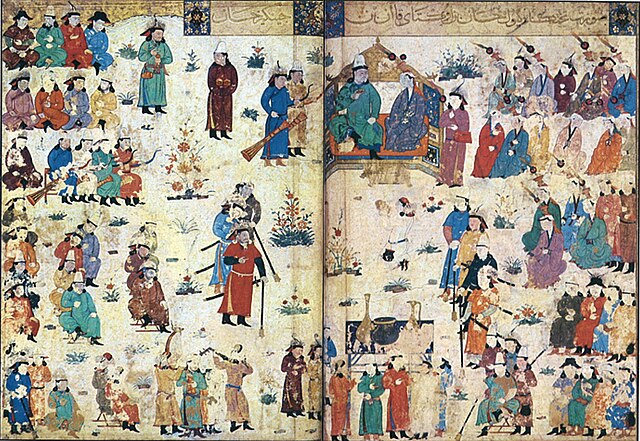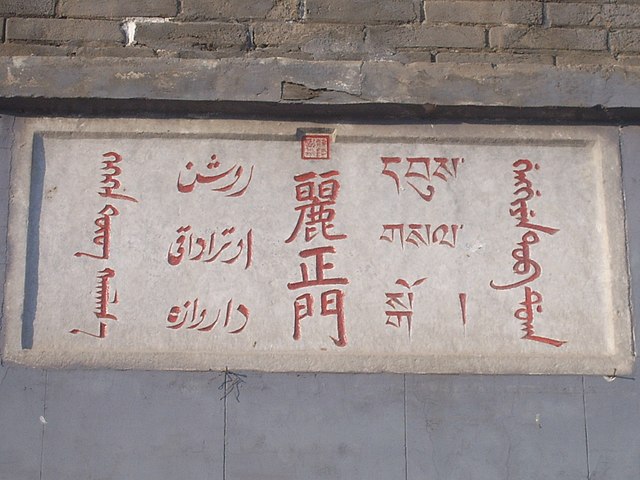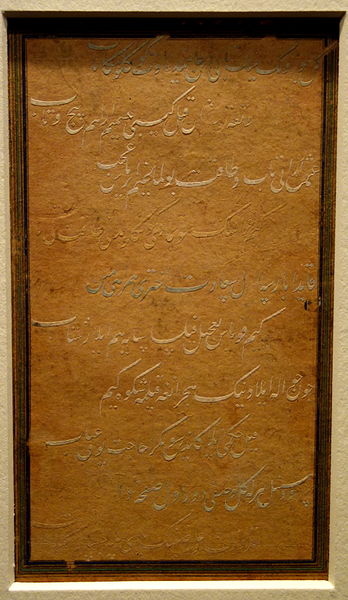Chagatai Khan was the second son of Genghis Khan and Börte. He inherited most of what are now five Central Asian states after the death of his father. He was also appointed by Genghis Khan to oversee the execution of the Yassa, the written code of law created by Genghis Khan.
Statue of Chagatai Khan in Mongolia
The Chagatay Khan and His Consort, Jāmiʿ al-tavārīkh of Rashid al-Din, Iran, late 14th century.
The Chagatai Khan and His Consort, Jāmiʿ al-tavārīkh of Rashid al-Din, Indian copy 1590–1595.
The funeral of Chagatai Khan.
Chagatai, also known as Turki, Eastern Turkic, or Chagatai Turkic, is an extinct Turkic language that was once widely spoken across Central Asia. It remained the shared literary language in the region until the early 20th century. It was used across a wide geographic area including western or Russian Turkestan, eastern or Chinese Turkestan, the Crimea, the Volga region, etc. Literary Chagatai is the predecessor of the modern Karluk branch of Turkic languages, which includes Uzbek and Uyghur. Turkmen, which is not within the Karluk branch but in the Oghuz branch of Turkic languages, was nonetheless heavily influenced by Chagatai for centuries.
Lizheng Gate at the Chengde Mountain Resort. The second column from the left is the Chagatai language written in Perso-Arabic Nastaʿlīq script which reads Rawshan Otturādiqi Darwāza.
Late 15th century Chagatai Turkic text in Nastaliq script.






